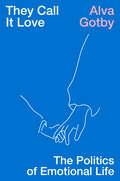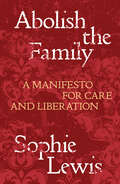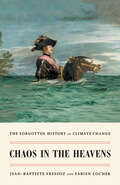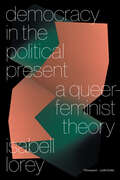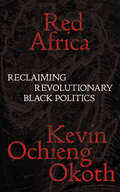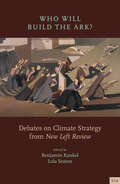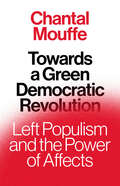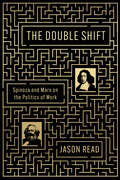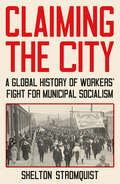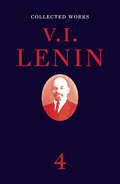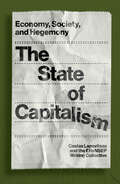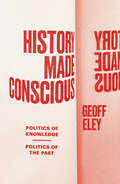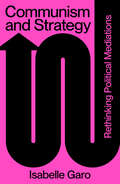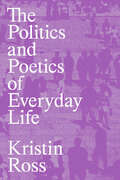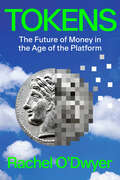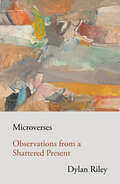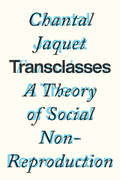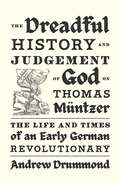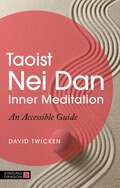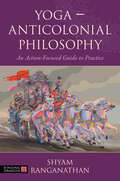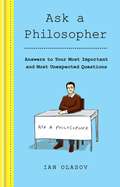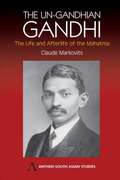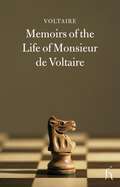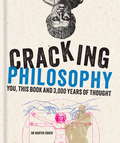- Table View
- List View
They Call It Love: The Politics of Emotional Life
by Alva GotbyThe work of love is a feminist problem, and it demands feminist solutions Comforting a family member or friend, soothing children, providing company for the elderly, ensuring that people feel well enough to work; this is all essential labour. Without it, capitalism would cease to function. They Call It Love investigates the work that makes a haven in a heartless world, examining who performs this labor, how it is organised, and how it might change. In this groundbreaking book, Alva Gotby calls this work &“emotional reproduction,&” unveiling its inherently political nature. It not only ensures people&’s well-being but creates sentimental attachments to social hierarchy and the status quo. Drawing on the thought of the feminist movement Wages for Housework, Gotby demonstrates that emotion is a key element of capitalist reproduction. To improve the way we relate to one another will require a radical restructuring of society.
Abolish the Family: A Manifesto for Care and Liberation
by Sophie LewisWhat if we could do better than the family? We need to talk about the family. For those who are lucky, families can be filled with love and care, but for many they are sites of pain: from abandonment and neglect, to abuse and violence. Nobody is more likely to harm you than your family. Even in so-called happy families, the unpaid, unacknowledged work that it takes to raise children and care for each other is endless and exhausting. It could be otherwise: in this urgent, incisive polemic, leading feminist critic Sophie Lewis makes the case for family abolition. Abolish the Family traces the history of family abolitionist demands, beginning with nineteenth century utopian socialist and sex radical Charles Fourier, the Communist Manifesto and early-twentieth century Russian family abolitionist Alexandra Kollontai. Turning her attention to the 1960s, Lewis reminds us of the anti-family politics of radical feminists like Shulamith Firestone and the gay liberationists, a tradition she traces to the queer marxists bringing family abolition to the twenty-first century. This exhilarating essay looks at historic rightwing panic about Black families and the violent imposition of the family on indigenous communities, and insists: only by thinking beyond the family can we begin to imagine what might come after.
Chaos in the Heavens: The Forgotten History of Climate Change
by Jean-Baptiste Fressoz Fabien Locher"If you want to understand the long path to the climate crisis, read this book." –Deborah Coen, Professor of History and the History of Science and Medicine, Yale UniversityPoliticians and scientists have debated climate change for centuries in times of rapid changeNothing could seem more contemporary than climate change. Yet, in Chaos in the Heavens, Jean-Baptiste Fressoz and Fabien Locher show that we have been thinking about and debating the consequences of our actions upon the environment for centuries. The subject was raised wherever history accelerated: by the Conquistadors in the New World, by the French revolutionaries of 1789, by the scientists and politicians of the nineteenth century, by the European imperialists in Asia and Africa until the Second World War.Climate change was at the heart of fundamental debates about colonisation, God, the state, nature, and capitalism. From these intellectual and political battles emerged key concepts of contemporary environmental science and policy. For a brief interlude, science and industry instilled in us the reassuring illusion of an impassive climate. But, in the age of global warming, we must, once again, confront the chaos in the heavens.
Democracy in the Political Present: A Queer-Feminist Theory
by Isabell Lorey&“Presentist democracy is without a people and without nation. Rather than regimes of borders and migration, its borders are sexism and racism, homo- and transphobia, colonialism and extractivism.&”In the midst of the crises and threats to liberal democracy, Isabell Lorey develops a democracy in the present tense; one which breaks open political certainties and linear concepts of progress and growth. Her queer feminist political theory formulates a fundamental critique of masculinist concepts of the people, representation, institutions, and the multitude. In doing so, she unfolds an original concept of a presentist democracy based on care and interrelatedness, on the irreducibility of responsibilities—one which cannot be conceived of without social movements&’ past struggles and current practices.
Red Africa: Reclaiming Revolutionary Black Politics (Salvage Editions)
by Kevin Ochieng OkothSalvaging a decolonised futureRed Africa makes the case for a revolutionary Black politics inspired by Marxist anti-colonial struggles in Africa. Kevin Ochieng Okoth revisits historical moments when Black radicalism was defined by international solidarity in the struggle against capitalist-imperialism, that together help us to navigate the complex histories of the Black radical tradition.He challenges common misconceptions about national liberation, showing that the horizon of national liberation was not limited to the nation-building projects of post-independence governments.While African socialists sought to distance themselves from Marxism and argued for a &‘third way&’ socialism rooted in &‘traditional African culture&’ the intellectual and political tradition Okoth calls &‘Red Africa&’ showed that Marxism and Black radicalism were never incompatible.The revolutionary Black politics of Eduardo Mondlane, Amílcar Cabral, Walter Rodney and Andrée Blouin gesture toward a decolonised future that never materialised. We might yet build something new from the ruins of national liberation, something which clings onto the utopian promise of freedom and refuses to let go. Red Africa is not simply an exercise in nostalgia, it is a political project that hopes to salvage what remains of this tradition—which has been betrayed, violently suppressed, or erased—and to build from it a Black revolutionary politics capable of imagining new futures out of the uncertain present.
Who Will Build the Ark?: Debates on Climate Strategy from New Left Review
by Benjamin Kunkel Lola SeatonWhat ecological politics should the left propose? In Who Will Build the Ark?, leading radical thinkers debate left alternatives to runaway global heating, capitalist crisis and wider environmental breakdown, clarifying the stakes in today&’s key disputes between Green New Deal supporters and proponents of &“degrowth.&” In a series of landmark texts first published by New Left Review, Herman Daly and Benjamin Kunkel discusses the possibility of an egalitarian, steady-state economy, while Robert Pollin warns against the worldwide slump &“degrowth&” could bring and calls instead for a single-issue campaign—2 per cent of global GDP dedicated to the switch to renewable energy—as the swiftest solution to the emissions crisis.Nancy Fraser envisages an eco-socialist exit from capitalism&’s multifold crises, while Troy Vettese advocates eco-austerity and half-earth rewilding. Lola Seaton draws out the strategic implications of these contested perspectives, in a set of unavoidable &“green questions.&” In the realm of contemporary politics, Alyssa Battistoni writes on the dead-end of COP diplomacy, Cédric Durand asks whether energy shortages will derail the transition away from fossil fuels, and Thomas Meaney compares Green New Deal proposals to the pinched reality of Biden&’s Inflation Reduction Act.The world&’s major powers accept the likelihood of dangerous climate change, yet seem incapable of averting it. Can radical green models generate the social leverage needed to do so? Or, as Mike Davis puts it: Who will build the Ark?
Towards A Green Democratic Revolution: Left Populism and the Power of Affects
by Chantal MouffeHow to rebuilt left populism around the demands for the Green Democratic RevolutionIn recent years, the promises of the populist moment have faltered, as seen in the defeats of Jeremy Corbyn, Bernie Sanders, Jean-Luc Melenchon. In addition, the pandemic has brought about a strong need for protection, creating a favorable terrain for authoritarian forms of politics. This new situation represents a challenge for the left, whose rationalism and modernist idea of progress is rightly suspicious of such demands. How, therefore, can the left deal with the economic, social and ecological crisis that the pandemic has brought to the fore?Chantal Mouffe argues that the left should not underestimate the importance of affects when developing a strategy for political change. In fact, after years of &‘post-politics&’, we are witnessing a &‘return of the political&’. And in response Mouffe proposes the creation of a broad coalition of movements under the banner of a 'Green Democratic Revolution'. This entails the protection of society and its material conditions in a way that empowers people instead of making them retreat in a defensive nationalism or in a passive acceptance of technological solutions. It is protection for the many, not the few, providing social justice and fostering solidarity.Towards A Green Democratic Revolution is a bold rallying cry for political organisation in the post-pandemic era.
The Double Shift: Spinoza and Marx on the Politics of Work
by Jason Read"This book is a must read for students of contemporary capitalism."—Kathi Weeks, Duke University"Why do people fight for their exploitation as if it was liberation?" How Marx and Spinoza can explain our perverse attachment to the indignities of workIn a world of declining wages, working conditions, and instability, the response for many has been to work harder, increasing hours and finding various ways to hustle in a gig economy. What drives our attachment to work? To paraphrase a question from Spinoza, "Why do people fight for their exploitation as if it was liberation?"The Double Shift turns towards the intersection of Marx and Spinoza in order to examine the nature of our affective, ideological, and strategic attachment to work. Through an examination of contemporary capitalism and popular culture it argues that the current moment can be defined as one of "negative solidarity."The hardship and difficulty of work is seen not as the basis for alienation and calls for its transformation but rather an identification with the difficulties and hardships of work. This distortion of the work ethic leads to a celebration of capitalists as job creators and suspicion towards anyone who is not seen as a "real worker."The book is grounded in philosophy, specifically Marx and Spinoza, and is in dialogue with Plato, Smith, Hegel, and Arendt, but, at the same time, in examining contemporary ideologies and ideas about work it discusses motivational meetings at Apple Stores, the culture of Silicon Valley, and films and television from Office Space to Better Call SaulThe Double Shift argues for a transformation of our collective imagination and attachment to work.
Claiming the City: A Global History of Workers’ Fight for Municipal Socialism
by Shelton StromquistHow workers fought for municipal socialism to make cities around the globe livable and democratic - and what the lessons are for today.For more than a century, municipal socialism has fired the imaginations of workers fighting to make cities livable and democratic. At every turn propertied elites challenged their right to govern. Prominent US labor historian, Shelton Stromquist, offers the first global account of the origins of this new trans-local socialist politics. He explains how and why cities after 1890 became crucibles for municipal socialism. Drawing on the colorful stories of local activists and their social-democratic movements in cities as diverse as Broken Hill, Christchurch, Malmö, Bradford, Stuttgart, Vienna, and Hamilton, OH, the book shows how this new urban politics arose. Long governed by propertied elites, cities in the nineteenth century were transformed by mass migration and industrialization that tore apart their physical and social fabric. Amidst massive strikes and faced with epidemic disease, fouled streets, unsafe water, decrepit housing, and with little economic security and few public amenities, urban workers invented a local politics that promised to democratize cities they might themselves govern and reclaim the wealth they created. This new politics challenged the class power of urban elites as well as the centralizing tendencies of national social-democratic movements. Municipal socialist ideas have continued to inspire activists in their fight for the right of cities to govern themselves.
Collected Works, Volume 4
by V. I. LeninRe-launch of the Collected Works of the legendary revolutionary in paperbackAmong the most influential political and social forces of the twentieth century, modern communism rests firmly on philosophical, political, and economic underpinnings developed by Vladimir Ilyich Ulyanov, later known as Lenin. For anyone who seeks to understand capitalism, the Russian Revolution, and the role of communism in the tumultuous political and social movements that have shaped the modern world, the works of Lenin offer unparalleled insight and understanding.
The State of Capitalism: Economy, Society, and Hegemony
by Costas Lapavitsas EReNSEP Writing CollectiveThinking beyond pandemic capitalismThe health emergency that broke out in 2020 is a landmark event in the development of capitalism, confirming the underlying change signalled by the Great Crisis of 2007-9. The pandemic has catapulted the state to the centre of economic activity. However, a historic impasse is steadily becoming apparent at the core of the world economyProductive accumulation is flaccid, as both profitability and labour productivity are weak. Financialisation has entered a new phase, as &“shadow banking&” grew relative to other banks but is entirely dependent on the state. The power of the state derives from command over fiat money and can certainly deliver enormous boosts to aggregate demand, but that is not enough to tackle the weakness of the productive sector.The rise in inflation for the first time in forty years indicates the impasse. There is a transparent need for intervention on the supply side, directly challenging capitalist property rights. There is no evidence, however, that the ruling blocs in core countries would engage in such policies.The pandemic crisis also brought to the fore fresh divisions of core and periphery across the world economy. Imperialism has assumed new forms, spurred by globally active financial capital and internationalised productive capital. A renewed contest for hegemony has emerged as US power declined. The economic challenge of China will unfold steadily in the years ahead, intensifying political tensions and military rivalries.This book is the work of a research collective comprising authors from several parts of the world. It analyses these vital issues from the perspective of Marxist political economy and puts forth alternative anticapitalist proposals.
History Made Conscious: Politics of Knowledge, Politics of the Past
by Geoff EleyHow History has changed in the half-century since the 1960sDuring the last fifty years, the writing of history underwent two massive transformations. First, powered by Marxism and other materialist sociologies, the great social history wave instated the value of social explanation.Then, responding to new theoretical debates, the cultural turn upset many of those freshly earned certainties. Each challenge was profoundly informed by politics, from issues of class, gender, and race to those of identity, empire, and the postcolonial.The resulting controversies brought historians radically changed possibilities, expanding subject matters, unfamiliar approaches, greater openness to theory and other disciplines, a new place in the public culture. History Made Conscious offers snapshots of a discipline continuously rethinking its charge. How might we understand "the social" and "the cultural" together? How do we collaborate most fruitfully across disciplines? If we take theory seriously, how does that change what historians do? How should we think differently about politics?
Communism and Strategy: Rethinking Political Mediations
by Isabelle GaroCommunism is not just a dream of a better world, it is also a theory about how we get thereIf the question of communism is making a comeback today, this renewed interest is often accompanied by an abandonment of any concrete political perspective.Critical philosophies are flourishing and proliferating, but, folded into the academic terrain, they often remain disconnected from the global issues associated with the present crisis of capitalism, contributing, in turn, to the fragmentation of the resistances that are opposed to it.Instead of locking the perspective of emancipation into the registers of utopia, or relegating it to the side of an empty populism, Isabelle Garo studies in this book the conditions of a contemporary revival of the alternative as a collective construction, anchored in real aspirations and struggles and inseparable from a rethinking of the theoretical work.By addressing the impasses faced by many of the most fashionable radical theorists - Badiou, Laclau, the theorists of the commons, and revisiting them in relation to Marx and Gramsci also allows us to re-read the latter from the point of view of contemporary questions of the state and the party, of work and property, of conflict and hegemony.Thus, to rethink strategy is above all to re-explore the question of mediations, whether they be forms of organisation or existing mobilisations, as sites par excellence of political invention.
The Politics and Poetics of Everyday Life
by Kristin RossUsing the concept of the everyday as a lever for social transformationThe texts in this volume represent Kristin Ross&’s attempt to think the question of the everyday across a range of discourses, practices and knowledges, from philosophy to history, from the visual arts to popular fiction, all the way to the forms taken by collective political action in the territorial struggles of today. If everyday life is, as many have come to believe, the ideal vantage point for an analysis of the social, it is also the crucial first step in its transformation.The volume opens with a return to Henri Lefebvre&’s powerful attempt to use the everyday as both residue and resource, as the site of profound alienation and—by the same token—the site where all emancipatory initiatives and desires begin.The second section focuses on our attempts to represent our lived reality to ourselves in cultural forms, from painting and literature and film to an analysis of the contemporary transformations of the sub-genre most embedded in the deep superficiality of everyday life: detective fiction.The final section turns to present-day ecological occupations in the wake of the zad at Notre-Dame-des-Landes, and locates the everyday as a site for rich oppositional resources and immanent social creativity.
Tokens: The Future of Money in the Age of the Platform
by Rachel O'Dwyer**Longlisted for the Financial Times Business Book of the Year**---Platform capitalism is coming for the money in your pocketWherever you look, money is being re-placed by tokens. Digital platforms are issuing new kinds of money-like things: phone credit, shares, gift vouchers, game tokens, customer data—the list goes on. But what does it mean when online platforms become the new banks? What new types of control and discrimination emerge when money is tied to specific apps or actions, politics or identities?Tokens opens up this new and expanding world. Exploring the history of extra-monetary economies, Rachel O&’Dwyer shows that private and grassroots tokens have always haunted the real economy. But as the large tech platforms issue new money-like instruments, tokens are suddenly everywhere. Amazon&’s Turk workers are getting paid in gift cards. Online streamers trade in wishlists. Foreign remittances are sent via phone credit. Bitcoin, gift cards, NFTs, customer data, and game tokens are the new money in an evolving economy. It is a development challenging the balance of power between online empires and the state. Tokens may offer a flexible even subversive route to compensation. But for the platforms themselves they can be a means of amassing frightening new powers.An essential read for anyone concerned with digital money, inequality, and the future of the economy.
Microverses: Observations from a Shattered Present
by Dylan RileyShort essays of social theory for damaged times, encompassing intellectual history, philosophy and cultureMicroverses comprises over a hundred short essays inviting us to think about society – and social theory – in new ways. Lockdown created the conditions for what Adorno once termed &‘enforced contemplation&’. Dylan Riley responded with the tools of his trade, producing an extraordinary trail of notes exploring how critical sociology can speak to this troubled decade. Microverses analyses the intellectual situation, the political crisis of Trump&’s last months in office, and love and illness in a period when both were fraught with the public emergency of the coronavirus.Riley brings the theoretical canon to bear on problems of intellectual culture and everyday life, working through Weber and Durkheim, Parsons and Dubois, Gramsci and Lukács, MacKinnon and Fraser, to weigh sociology&’s relationship to Marxism and the operations of class, race and gender, alongside discursions into the workings of an orchestra and the complicatedness of taking a walk in a pandemic.Invitations rather than finished arguments, the notes attempt to recover the totalising perspective of sociology – the ability to see society in the round, as though from the outside – and to recuperate what Paul Sweezy described as a sense of the &‘present as history&’.
Transclasses: A Theory of Social Non-reproduction
by Chantal JaquetHow people become "class traitors"One is not born a worker or a boss. Social reproduction is not an iron law; it admits of exceptions that must be accounted for in order to measure its scope.This book aims to understand the passage from one social class to another and to forge a method of approaching these particular cases which remain a blind spot in the theory of social reproduction. It analyzes the political, economic, social, familial and singular causes that contribute to non-reproduction, and their effects on the constitution of individuals transiting from one class to another.At the crossroads of collective history and intimate history, Chantal Jaquet identifies class locations, the interplay of affects and encounters, and the role of sexual and racial differences. She invites us to break out of disciplinary isolation in order to grasp singularity at the crossroads of philosophy, sociology, psychology and literature.This requires deconstruction of the concepts of social and personal identity, in favour of a concepts like complexion and the criss-crossing determinations. Through the figure of the transclass, it is thus the whole human condition that is illuminated in a new light.
The Dreadful History and Judgement of God on Thomas Müntzer: The Life and Times of an Early German Revolutionary
by Andrew DrummondOn the 500th anniversary of the German Peasant Wars, a brilliant portrait of Thomas Munzter: radical millenarian preacher, revolutionary and iconoclast'The princes are nothing but tyrants who flay the people; they fritter away our blood and sweat on their pomp and whoring and knavery.&’ These were the words of Thomas Müntzer at the head of the massed ranks of a peasant army in the year 1525. Ranged against him were the might of the princes of the German Nation. How did Müntzer, the son of a coin maker from central Germany, rise in just a few short years to become one of the most feared revolutionaries in early modern Europe?In this brilliant work of historical excavation, Andrew Drummond charts the life and times of the man Martin Luther denounced as a &‘Ravening Wolf&’ and &‘False Prophet&’. Drummond shows us Müntzer as a human being. Far from the bloodthirsty devil of legend, he was a man of considerable learning and principle, deeply sympathetic to the misery of the peasantry and the poor. In his short life – he was beheaded at thirty-five – Müntzer promised to fundamentally upend German society.Seeking to save Müntzer from the condescension of history, Drummond guides us through the religious and political disputes of the Reformation, placing his life and thought in the context of those turbulent years. The result is a portrait of an often contradictory but always radical figure, one who continues to inspire movements of the poor across the globe.
Taoist Nei Dan Inner Meditation: An Accessible Guide
by David TwickenBased on the ancient wisdom of the Taoist tradition, this book translates cryptic, alchemical language into an accessible and straightforward guide to Nei Dan using everyday terms. Focussing on breath work, meditations, and series of movements founded in qi gong, this book aids you in attuning to your true nature and nurtures balance and wellbeing in your physical, spiritual, and psycho-emotional health.Through an integration of Nei Dan inner meditations, this book explains the art of letting go of our traumas, imprints, and conditioning and encourages a reattachment of the self to our true natures. Taoist Nei Dan Inner-Meditation builds upon David Twicken's full collection and provides a comprehensive system of Nei Dan meditation for all professionals working with Chinese Medicine and anyone interested in this form of meditation.
Yoga – Anticolonial Philosophy: An Action-Focused Guide to Practice
by Shyam RanganathanProviding a decolonial, action-focused account of Yoga philosophy, this practical work from Dr. Shyam Ranganathan, pioneering scholar in the field of Indian moral philosophy, focuses on the South Asian tradition to explore what Yoga was like prior to colonization. It challenges teachers and trainees to reflect on the impact of Western colonialism on Yoga as well as understand Yoga as the original decolonial practice in a way that is accessible. Each chapter takes the reader through a journey of sources and traditions, beginning with an investigation into the colonial -Platonic and Aristotelian- approaches to pedagogy in colonized yoga spaces, through contrary, ancient philosophies of South Asia, such as Jainism, Buddhism, Sankhya, and various forms of Vedanta, to sources of Yoga, including the Upanisads, Yoga Sutra, Bhagavad Gita and Hatha Yoga Pradipika. With discussions of the precolonial philosophy of Yoga, its relationship to social justice, and modern postural yoga's relationship with colonial trauma, this is a comprehensive guide for any yoga teacher or trainee to activate and synergize their practice. Supplementary online resources bring the text to life, making this the perfect text for yoga teacher trainings.
Ask a Philosopher: Answers to Your Most Important – and Most Unexpected – Questions
by Ian OlasovThe perfect gift for the smart thinker in your life.For several years Ian Olasov has set up 'Ask-a-Philosopher' booths around New York City, answering questions from passersby. Now in this book he offers answers to the real-life questions on people's minds.From the philosophical to the frivolous, questions include:- Are people innately good or bad?- Is it okay to have a pet fish?- Is it okay to have kids?- Is colour subjective?- If humans colonise Mars, who will own the land?- Is ketchup a smoothie?- Is there life after death?- Should I give money to homeless people?Every question is approached from a philosophical standpoint, but the answer is made fun and accessible for everyone. One of the many joys of this book is that you see how philosophy can be both perfectly continuous with everyday life and also utterly transporting.
Paradox in Christian Theology: An Analysis of Its Presence, Character, and Epistemic Status
by James AndersonHow can Jesus be fully human and fully divine? How can God be Three-in-One? James Anderson develops and defends a model of understanding paradoxical Christian doctrines according to which the presence of such doctrines is unsurprising and adherence to paradoxical doctrines can be entirely reasonable. As such, the phenomenon of theological paradox cannot be considered as a serious intellectual obstacle to belief in Christianity. The case presented in this book has significant implications for the practice of systematic theology, biblical exegesis, Christian apologetics and philosophy.
Un-Gandhian Gandhi: The Life and Afterlife of the Mahatma
by Claude MarkovitsThis major study reconsiders the creation of the Gandhian legend through the myriad texts and images that helped spread it through both India and the Western world.
Memoirs of the Life of Monsieur de Voltaire (Hesperus Classics)
by VoltaireWritten in the tongue-in-cheek manner for which he was famous, Monsieur de Voltaire' s memoirs reveal a new perspective on the international politics and history of the 18th century. Voltaire's role as acclaimed author, poet, dramatist, and philosopher led him to experience the personal attentions of the most illustrious men and women of his time. His irreverent, to say the least, portrayals of the leading figures of the day provide a hilarious portrait of the royal courts of Europe which fought over his services for almost 30 years. Only published posthumously, these memoirs relate and then commentate on literary accomplishments, historic fact, and salacious gossip alike.
Cracking Philosophy
by Martin CohenThis guide covers the main schools of thought from the Ancient Chinese philosophies of Confucius and Lao Tzu, Ancient wisdom from Aristotle, Plato, Zeno and Pythagoras through to those most influential of philosophers studied the world over - Hegel, Marx, Descartes, Kant, Kierkegaard and Wittgenstein to name but a few. It also discusses the big questions such as 'What is truth?', the relationship between philosophy and religion and the problem of morality..Accessible, well-informed and fully-illustrated, this is a wonderful book for anyone who is keen to know more about the history of philosophers and their theories.
